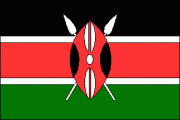President of the Security Council, Lord Ahmad of Wimbledon
The UN Secretary General, Antonio Guterres
Archbishop of Canterbury, Rt Hon and Most Rev Justin Welby
Ms Mosarat Qadeem,
Excellencies,
Ladies and Gentlemen,
President,
I take this opportunity to thank you for organizing this important debate and providing a detailed concept note to guide us. I congratulate you for ascending to the Presidency of the Security Council in August and commend you for the skillful manner you have conducted its affairs. I also thank the Secretary General for his briefing and the previous speakers for their insightful statements.
We note that this debate on mediation and peaceful settlement of conflicts comes at an opportune time given the evolving nature of conflicts worldwide. Now, more than ever before, prevention of conflicts remains the best way of resolving them. Mediation, however, cannot succeed in isolation. It is important to invest in prevention of conflict, build trust and drawing and having clear and inclusive mandates to guide the mediation process which should also be complemented by reconciliation and post conflict development.
Mediation, therefore, remains central to the primacy of politics in the peaceful resolution of conflict in line with the UN Charter.
President,
It has been observed that the UN has registered much success in conflict management and resolution than in conflict prevention. We therefore note with appreciation the success stories in conflict prevention that the Secretary General outlined in his briefing today.
When the Secretary-General took over office in 2017, he declared his vision for a renewed emphasis by the UN on prevention and surge in diplomacy for peace. We note, with satisfaction, that a revamped and expanded UN Secretary General’s High-Level Advisory Board on Mediation is now in place. However, more resources, both voluntary and assessed, should be allocated for mediation and preventive diplomacy in the sustaining peace processes.
When a conflict breaks out, it is usually more costly to resolve. As such, a dime or cent invested in preventive mediation has more value than a dollar or pound invested in addressing conflict outbreak. Therefore, there is need to give more significance to prevention and building capacities in the field particularly in peacekeeping and other political missions.
President,
For many decades, Kenya has been at the center of regional peace processes and has chaired and worked with our neighbors on many peace initiatives within our sub-region. We have achieved successes and also challenges in the process. We call on the UN and the international community to continue supporting regional peace initiatives.
In order to achieve greater success in mediation and peaceful resolution of conflicts and in line with the Purposes and Principles of the UN Charter:
First, it is important to include women in all peace processes including mediation and other conflict prevention initiatives since women and children bear the greatest blunt
Secondly, It is important to leverage technology particularly in conflict early warning mechanisms to facilitate timely intervention.
Third, it is especially important to recognize the role of regional and sub-regional organizations such as such as African Union (AU), IGAD, EAC, ECOWAS, and the International Conference of the Great-lakes Region (ICGLR) in conflict prevention, management and resolution. They play a crucial role in mediation and peaceful settlement of conflict in their respective jurisdictions. Through continued technical assistance, capacity building, political support and general goodwill these organizations can play even a much greater role.
For instance, the role of the African Union Mission in Somalia (AMISOM) apart from degrading a terrorist organization (Al Shabaab) it has also been active in reconciliation and has contributed in confidence to support mutual trust among communities. Amisom needs to be fully supported for continued success in the implementation of the Somali Transition Plan.
Fourth, there is therefore need for adequate and predictable resources for conflict prevention and mediation. Addressing the socio-economic conditions that lead to conflicts, promotion of human rights and building national and regional capacities for conflict prevention are key to sustainable peace and development.
Finally, national ownership and inclusivity are very important in mediation processes. This calls for strong coordination and cooperation between the UN, national authorities, civil society, the private sector and other stakeholders based on mutual trust and complementarity.
I thank you


